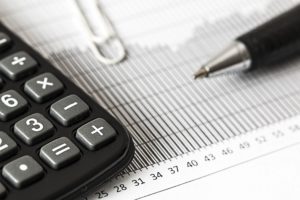Nowadays, The wide variety of computer applications aimed to manage the finances of a company has caused the differences between an ERP software and accounting software to be somewhat diffuse. As a matter of fact, many people believe they are the same when technically, they aren’t.
It’s quite important to understand how they differ. When comparing, we can only do it properly if they belong to the same category. The opposite would be choosing between a motorcycle and a plane, hardly comparable. It is convenient to analyse each functionalities.
Main differences between an ERP vs an accounting software
Traditionally, accounting software has been used to -as its name suggests-, manage company’s accounting, or how money moves: the general ledger, account receivable and payable, expenses… Depending on the versatility of the program, it can also include the capability to manage billing, payroll, taxes, purchase and sale orders…
On the other hand, ERPNext software solutions integrates all the functions of an accounting program but goes a step further. As an “enterprise resource planner” this tool manages the company’s finance, tangible and intangible assets, as well as human resources and materials.
Some intangible parameters can be working hours, a product’s lifecycle or the relationship with customers. Issues not to be reflected in accounting, but with heavy influence in finance, reason why being able to control them, together with accountability is a profit factor for any company.
Flexibility of ERP software vs accounting software to adapt
The way in which manufacturing software achieve flexibility is modular configuration. These can be included individually, each one supporting different specific functions, but with the advantage that all the department’s information is shared and managed from a single database.
In addition, the degree of specialisation of these modules, means each sector get the specific set of tools for their activity, or a unique enterprise with a wide horizontal extension, can manage many different business areas.
Thus, in addition to accounting, they can be used for budgeting and order management, purchase and shipment management, purchase orders, sending and receiving invoices, financial planning, purchases and suppliers’ management and many more.
For this, a CRM software solution isn’t exclusively reserved for big enterprises, almost any SME can benefit from these tools thanks to their flexibility and scalability. Being this another advantage, it can, anytime, be adapted to the demand of each of the company’s processes.
ERP adaptability vs an accounting software
An additional benefit for medium-sized companies is field service management software solves one of the most common issues found in them: using different applications or software for each department or activity. Each application used means duplicate information, with the consequent waste of effort and time.
Further implications of using different tools is information being disseminated in different databases, probably stagnated and in the best case scenario they have to be merged, making any analysis harder than when using ngo accounting software, where the database is unique and any department can access in real time to all the data required for the operational decisions. Even more if we bear in mind many of them use cloud technology.
If we think about inventory control, the main interest of any company consists in having the right amount of product at the right time. Holding client, sales and stock in different databases, management complexity grows exponentially.
Another issue commonly seen in these medium-sized companies is accounting management process. How much time is spent introducing invoices and order data into different systems? Also checking for possible errors? Again, unlike many traditional accounting software, an ehs software solution allows grouping all financial information into a single database, and as we mentioned in our last week’s article, a good configuration can reduce accounting closing times to half.
When is time to change to ERP software
Usually companies find it difficult to know when is time to switch from accounting software to an ERP. No doubt the time will come. When businesses start it is quite likely a very simple tool fulfils their needs; but as the company grows, processes tend to become more complex, adopting an hvac service software will only help improve its management.
ERPs already have their own accounting tools, and its capability to adapt to the client’s needs, makes accounting programs a waste. New job card software increasingly versatile, powerful and easier to use, inexorably surpass traditional accounting software.




















+ There are no comments
Add yours